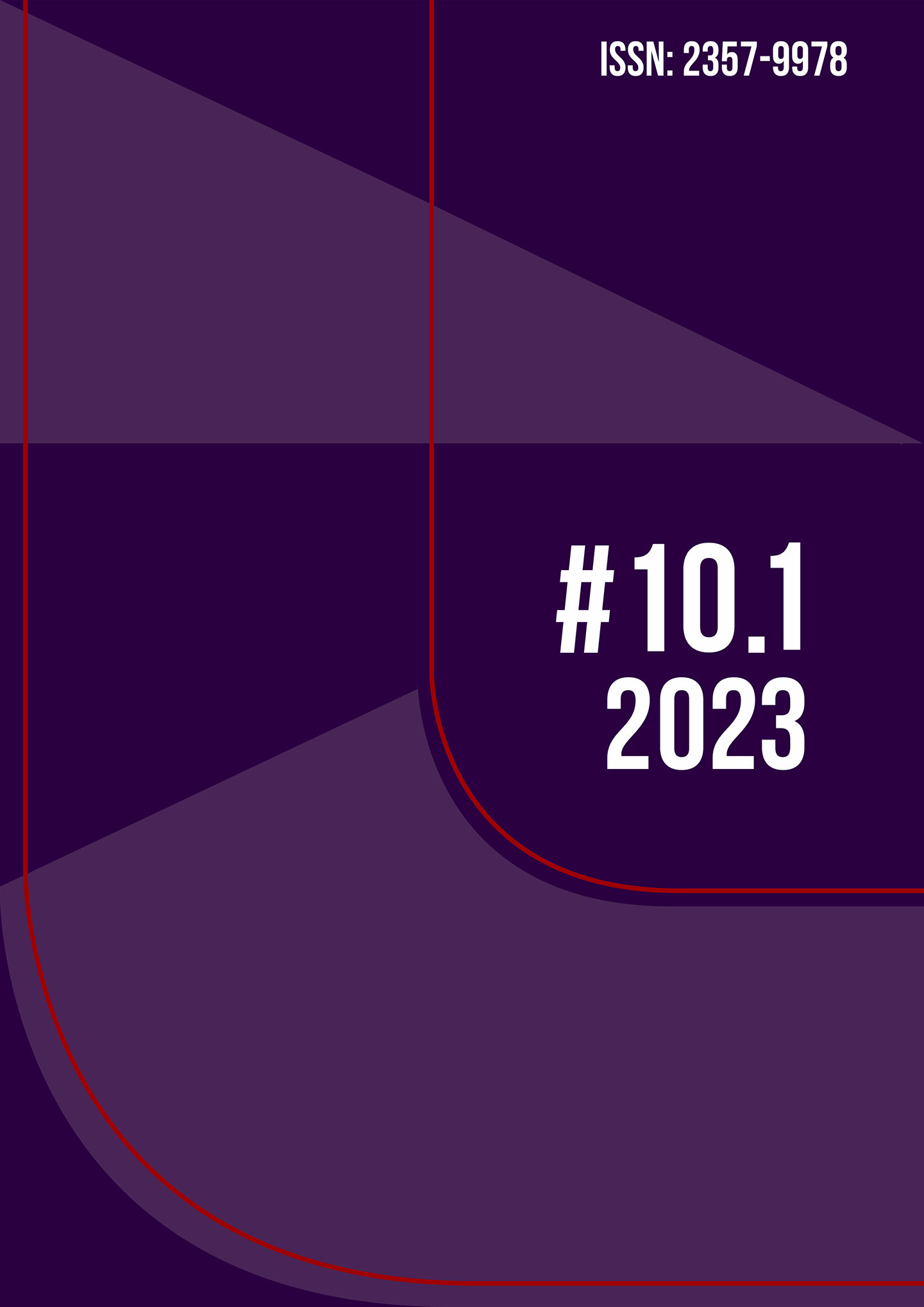The Useful Virtuoso
DOI:
https://doi.org/10.36025/arj.v10i1.31798Keywords:
virtue, virtuoso, musical rhetoric, Johann Mattheson, Francesco GeminianiAbstract
In the contemporary musical practices, terms such as virtuoso or virtuose are frequently employed in order to qualify instrumentalists or singers whose advanced technical skills stand out by the apparently impossible, inconceivable and inexplicable. Such conception of virtue matches the nineteenth-century thought and is traditionally associated with the idea of genius. In the present text, we seek to recover the meanings of virtue proper to the 18th century. We trace a history of the term, looking for recontextualize it in the scope of the writings of two eighteenth-century musical theorists: the German Johann Mattheson (1681-1767) and the Italian British Francesco Geminiani (1687-1762). In this sense, it is clear that the idea of virtuosity does not constrain to the skills on the instrument nor the voice, but neither refers to the realm of the inexplicable: it depends, above all, on the moral conduct in a constant perfectioning process.
Downloads
References
ADELUNG, Johann Christoph. Grammatisch-kritisches Wörterbuch der Hochdeutschen Mundart. Leipzig: Bernhard Christoph Breitkopf, 1774-1786.
ADDISON, Joseph. Os prazeres da imaginação. In: Cadernos de Anglística 4. Tradução de Alcinda Pinheiro de Souza et al. Lisboa: Edições Colibri, 2002.
ARISTÓTELES. Ethica Nicomachea I 13-III 8: tratado da virtude moral. Tradução, notas e comentários de Marco Zingano. São Paulo: Odysseus, 2008.
AVISON, Charles. Essay on Musical Expression. London: Lockyer Davis, 1752.
BAILEY, Nathan. The Universal Etymological English Dictionary. London: Thomas Cox, 1737.
BARROS, Cassiano. Apontamentos sobre as categorias analíticas de Joachim Burmeister (1564-1629). Art Research Journal: Revista de Pesquisa em Artes, v. 7, n. 1, p. 1-25, 2020.
B.E. A New Dictionary of the Terms Ancient and Modern of the Canting Crew. London: W. Hawes, P. Gilbourne e W. Davis, 1699.
BLOUNT, Thomas. Glossographia or a dictionary. London: T. Newcomb, 1656.
COLES, Elisha. An English Dictionary. London: P. Parker, 1677.
DEFOE, Benjamin Norton. A NEW English Dictionary. London: John Brindley, Olive Payne, John Jolliffe, Alexander Lyon, Charles Corbett, e Richard Wellington, 1735.
EDDY, Alexandra. American Violin Method-Books and European Teachers, Geminiani to Spohr. American Music, v. 8, n. 2, p. 167-209, 1990.
FÉTIS, François-Joseph. Biographical note of Niccolo Paganini, with an analysis of his compositions and a sketch of the history of the violin. London: Schott & Co., c.1880.
FONSECA-WOLLHEIM, Corina da. Ida Haendel, Violin Virtuoso With ‘Fire and Ice’ in Her Playing, Dies. Disponível em: https://www.nytimes.com/2020/07/08/arts/music/ida-haendel-dead.html. Acesso em: 16 de maio de 2022.
HANSEN, João Adolfo. Ut Pictura Poesis e verossimilhança na doutrina do conceito no século XVII colonial. In: CUNHA, Cilaine Alves.; LAUDANNA, Mayra. (Org.). Agudezas Seiscentistas e Outros Ensaios. São Paulo: Edusp, 2019.
HELD, Marcus. Francesco Geminiani (1687-1762): tradução e comentários da obra teórica completa. Dissertação (Mestrado em Música) – Escola de Comunicações e Artes da Universidade de São Paulo, São Paulo, 2017.
HELD, Marcus. O caminho para a emulação: Francesco Geminiani e a consolidação do estilo inglês no século XVIII (1714-1762). Tese (Doutorado em Música) – Escola de Comunicações e Artes da Universidade de São Paulo, São Paulo, 2021.
LUCAS, Mônica. O lugar comum do humor em Haydn. Música Hodie, v. 1, n. 6, p. 1-11, 2006.
LUCAS, Mônica. Johann Mattheson e o ideal do Músico Perfeito. Per Musi, n. 35, p. 100-123, 2016.
MATTHESON, Johann. Der Brauchbare Virtuoso. Hamburg: Schiller e Kissler, 1720.
MATTHESON, Johann. Der Musicalische Patriot. Hamburg: s.e., 1728. Disponível em http://archive.org/details/DerMusicalischePatriot1728 (Acesso em 10/10/2012).
MATTHESON, Johann. Der vollkommene Capellmeister. Kassel [Hamburg]: Bärenreiter [Christian Herold], 1991 [1739].
PAOLIELLO, Noara. Gosto e Estilo na Música do Século XVIII. São Paulo: Annablume Editora: 2017.
QUINTILIANO, Marcos Fábio. Instituição Oratória. Tradução de Bruno Bassetto. Campinas: Editora da Unicamp, 2016.
ROMILLY, Jean-Edme. Virtude, 1756-1766. In: DIDEROT, D; D’ALEMBERT, J. (ed.) Enciclopédia: sociedade e artes. Tradução de Maria das Graças de Souza, Pedro Paulo Pimenta, Fábio Yasoshima, Luís Fernandes do Nascimento e Thomas Kawache. São Paulo: Editora Unesp, 2015.
VICKERS, Brian. In Defence of Rhetoric: Classical Rhetoric in English Poetry. Oxford: Oxford University Press, 1988.
WILLIS, Thomas. Dr Willis’s Practice of Physick. London: T. Dring, C. Harper, J. Leigh, 1684.
WILKINS, John. An Essay Towards a Real Character, And a Philosophical Language. London: Samuel Gellibrand e John Martyn, 1668.
WILSON, John. Roger North on Music: being a selection from his essays written during the years c.1695-1728. London: Novello and Company LTD, 1959.
YOUNGER, John Kersey, the. A New English Dictionary. London: Henry Bonwicke e Robert Knaplock, 1702.
ZEDLER, Johann Heinrich. Grosses vollständiges Universal-Lexicon aller Wissenschafften und Künste. Halle e Leipzig: Jacob August Franckenstein, Paul Daniel Longolius e Carl Günther Ludovici, 1731-1754.
Downloads
Published
How to Cite
Issue
Section
License
Copyright (c) 2023 Marcus Held, Mônica Lucas (Autor)

This work is licensed under a Creative Commons Attribution-NonCommercial-ShareAlike 4.0 International License.

This work is licensed under a Attribution-NonCommercial-ShareAlike 4.0 International (CC BY-NC-SA 4.0) License.
Authors retain copyright, while licensing their work under a Attribution-NonCommercial-ShareAlike 4.0 International (CC BY-NC-SA 4.0) License.


 English
English Português (Brasil)
Português (Brasil)
